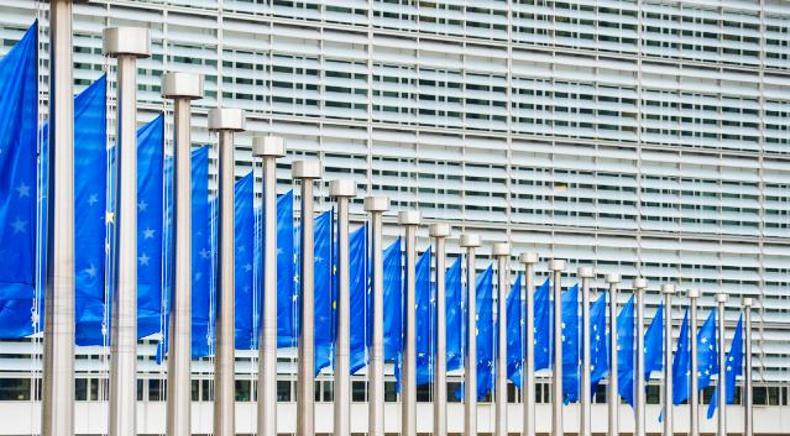It is now 84 days until the UK departs the EU and as the countdown continues the focus appears to be on getting out rather than trying to find a fudge that prevents a no-deal Brexit.
When Boris Johnson came into Downing Street, he immediately moved to appoint a cabinet of hard-line leavers with the ambition of getting out of the EU by 31 October irrespective of implications.
While this is the holiday season in Brussels and the EU institutions have just a skeleton staff, the indication this week is that there is nothing really to discuss with the UK and the focus is on life after the UK leaves with no deal.
There has been a multitude of reports documenting the negative consequences but for farmers
There will be negative consequences everywhere in this situation but the worst effects will be felt on the island of Ireland, and in agriculture in particular.
There has been a multitude of reports documenting the negative consequences but for farmers the issue will be what happens on day one when the UK is no longer a member of the EU.
Sterling
For farmers south of the border, a huge impact has already been felt with the collapse in the value of sterling against the euro, making Irish exports to the UK up to 25% more expensive than they were in the year before the referendum.
Sterling has been particularly volatile in the last few days, sliding to 92.5p = €1, making Irish exports to the UK more expensive.
Of course as the beef price this year demonstrates, the market doesn’t necessarily accept this increase.
It may pay just the same in sterling, which when converted into euro, meaning the suppliers will receive less. Inevitably, it is farmers who carry the cost of this as they are at the end of the supply chain.
UK no-deal Brexit approach
The UK government has decreed in its proposals for a no-deal Brexit that it will not have any impediment on movements across the border to Northern Ireland.
Beef will be able to flow as usual under the 230,000t tariff-free quota plus whatever amount travels through Northern Ireland.
In the longer term (but not on day one), the UK market for beef will be seriously weakened by the availability of South American imports
Sheepmeat sales to the UK would be frustrated by the full tariff that would be applicable in a no-deal Brexit. However, given the surplus of sheepmeat that will be in the UK after a no-deal Brexit, there will be no meaningful market there anyway.
In the longer term (but not on day one), the UK market for beef will be seriously weakened by the availability of South American imports under the new UK tariff regime.
Worse for farmers in NI
A no-deal Brexit will be even worse for Northern Ireland farmers and agri businesses. As the leaked UK civil service report last week confirms, transactions from north to south will cease immediately.
The UK is the world’s third-biggest exporter of sheepmeat, predominantly to the rest of the EU
For farmers, that means there will be no southern buyers in the marts for lambs or indeed cull cows. It is particularly important for lambs as 420,000 of them, almost half the Northern Ireland crop in 2018, went south for processing.
If this option isn’t available, an emergency scheme will be necessary to take sheepmeat off the market as the rest of the UK will also be saturated.
The UK is the world’s third-biggest exporter of sheepmeat, predominantly to the rest of the EU and with this market wiped out in an instant, an emergency programme will be necessary.
Weaker sterling is good for farmers in the North exporting to the eurozone. Also, the final CAP payment will be converted to sterling based on the exchange rate in September. If the exchange rate holds or weakens further, it will be to the advantage of farmers in the North.
Progressive compared with instant
Beef in the North will also face a devalued market but this will happen progressively and won’t all occur on 1 November. The dairy sector is also really exposed, with 35% of milk coming south for processing.
That business would also have to cease instantly if there is no deal and while there may be just enough capacity north of the border to handle this, it would require a major reorientation of product to powders and sales outside the EU, possibly with the assistance of export refunds, to move the product quickly.
The open border policy of the UK should mean that supermarket shelves remain stocked
The bottom line is that the worst effects of Brexit on Irish farmers will be progressive, whereas for northern farmers, the impact will be instant for exports.
The open border policy of the UK should mean that supermarket shelves remain stocked but if there is a wider economic fallout and drop in consumer spending, a further threat exists for farmers.
Farmers will be hoping that a no-deal Brexit doesn’t come to pass but the evidence of recent days suggests that the worst case scenario is now the a real possibility.






 This is a subscriber-only article
This is a subscriber-only article










SHARING OPTIONS: